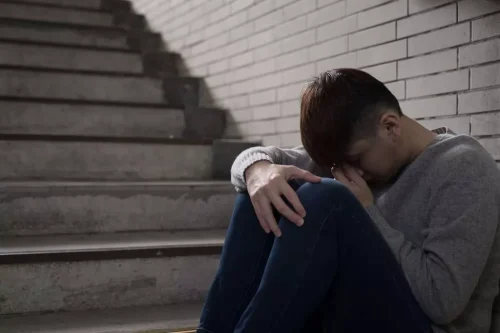
After writing their own name on the sheet, they turn it in to staff (effectively allowing staff to maintain a safe and productive environment). If they choose, clients can share what they wrote and provide additional feedback. (Most do.) Clients selected as “most likely” (in either category) have the opportunity to process with other group members and staff. Group therapy can be a fun way to improve aspects of mental and emotional wellbeing. The Empathy Bingo worksheet is an interactive way for group members to learn about empathy, develop healthy relationships, and practice self-compassion. These activities can help build healthy relationships and improve personal emotional wellness.
- The group therapist is as active participant of the group and helps its members to understand their individual problems as well as interpersonal problems.
- When a client shares their hesitations with you about group therapy, there are numerous benefits that you can discuss with them.
- The experience of meditating alongside others can be encouraging, inspiring, and help build social skills and self-esteem.
- They can provide a sense of connection, belonging, and shared interests (Shapiro & Gans, 2008).
- PsychiatryOnline subscription options offer access to the DSM-5-TR® library, books, journals, CME, and patient resources.
- Topics could include the neurological aspects of addiction, the cycle of addiction, and the long-term effects on physical and mental health.
- This is often a revealing activity that can help members get to know one another.
Effective Substance Abuse Group Therapy Activities for Recovery
It provides a supportive and empathetic environment where individuals can share their experiences, challenges, and triumphs with others on a similar path. Role-playing scenarios allow individuals to practice and refine their coping strategies in a safe and supportive environment. By taking on different roles and exploring various situations, participants can develop effective problem-solving skills, learn assertiveness techniques, and build resilience. These activities not only promote personal growth and self-awareness but also strengthen the bonds of support and encouragement among group members in Heroin Addiction Recovery. By incorporating fun and interactive elements into substance abuse recovery programs, individuals can embark on a journey of healing and transformation with confidence and enthusiasm. Other goals of group therapy include gaining inspiration through the recovery of others, self-identifying as a recovering addicting, and examining core values.
- If a client is disrespectful (cursing at you or another client, name-calling, insulting, etc.) while escalated, let them know it’s not okay, but don’t attempt to provide feedback.
- From this inspiration, people who are addicted to substances gain hope that they, too, can maintain abstinence.
- Because our need for human contact is biologically determined, we are, from the start, social creatures.
- Group therapy is a form of treatment in which emotionally disturbed persons are placed in a group, guided by one or more therapists for the purpose of helping individuals to bring a change in them.
- Group work activities help its members for their personal growth and development.
Looking For Addiction Help?
Pass out pieces of paper with drawings of a large bottle on them, and two lines are drawn across the bottle to create three different layers inside. Use the top layer to write three things about how you feel right now, use the middle layer for three ways you felt in the past, and use the bottom layer to “guess” at the deep feelings you try to hide from yourself. Make it clear that participants do not have to share anything they write, so they’ll feel free to explore potentially surprising emotions. Suggest different coping strategies they could use to stay sober when triggered.
Skills Building and Relapse Prevention Workshops
The act of creating music together in a group setting fosters a sense of belonging and unity. It allows individuals to connect with others who may have similar experiences or struggles, providing a support network that is essential for recovery. Group members are encouraged to listen actively and attentively to others, valuing their perspectives and experiences.

Does Insurance Cover Online CBT?
Family support group would be in multi-lingual as the people from varied culture seek treatment at centre for addiction medicine. Incorporating fun and engaging group activities into substance abuse support groups is more than just a therapeutic intervention; it’s a transformative experience. These activities serve as moments of connection, growth, and celebration, illuminating the path toward a brighter, substance-free future.
CBT Group Activities Essential for Substance Abuse Recovery
Group members can empathize/relate, share their observations and/or how it made them feel, and offer feedback. Clients are not always willing therapy participants; some are court-ordered to attend or there to have privileges restored. Some attendees may be there “voluntarily,” but only to save their marriage what are some ideas for substance abuse group activities? or keep a job, not believing they need help. In residential treatment, clients attend mandatory groups as part of the daily schedule. Once their original paper is returned to them, they can read and share with the group. This can lead to a powerful discussion about image, reputation, feeling fake, etc.
Conclusion: A Journey to Healing Together
While doing so, you will scan your body for pain or other sensations, practicing non-judgment, and simply noticing what it feels like. Participants may recognize positive aspects of themselves in another person, and sometimes it is easier to show appreciation toward proxies for the self before extending that appreciation to ourselves. Psychoeducation https://ecosoberhouse.com/article/psychological-dependence-on-alcohol-physiological-addiction-symptoms/ groups can be an effective environment in which to explore themes around self-appreciation and gratitude. Here is an example of a session you might run with adults undergoing Cognitive-Behavioral Therapy (CBT) on the theme of goal setting. We will also look at two more examples and ideas for session plans in the sections that follow.

